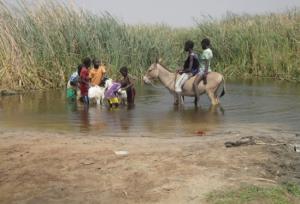Content:
In 1986, rural communities along the Senegal River in West Africa welcomed a dam that brought jobs to sugar cane plantations. But those who lived and worked in and around the river and surrounding waterways soon became infected with a new disease that slowly robbed them of health, cognitive ability and, in the bigger picture, the ability to thrive as a community.
The disease is schistosomiasis, and Senegal is still experiencing one of the worst epidemics of its kind in history.
"Schistosomiasis isn't as well known as malaria, tuberculosis or AIDS, but it is, frankly, nearly as bad," said UC Santa Barbara parasitologist Armand Kuris, who along with a multidisciplinary team of researchers is studying the effects of the parasitic worm around the Diama Dam that spans the river between Senegal and Mauritania. While infection with the worm does not result quickly in mortality, the effects of the disease -- a weakened immune system and impaired organs -- open the doors to serious medical complications. And it often increases after dams are built.
The available drug -- though successful at ridding patients of worms -- cannot reverse the damage already wrought by the presence of the worms and their eggs, nor can it prevent reinfection that occurs when people come into contact with the water.


